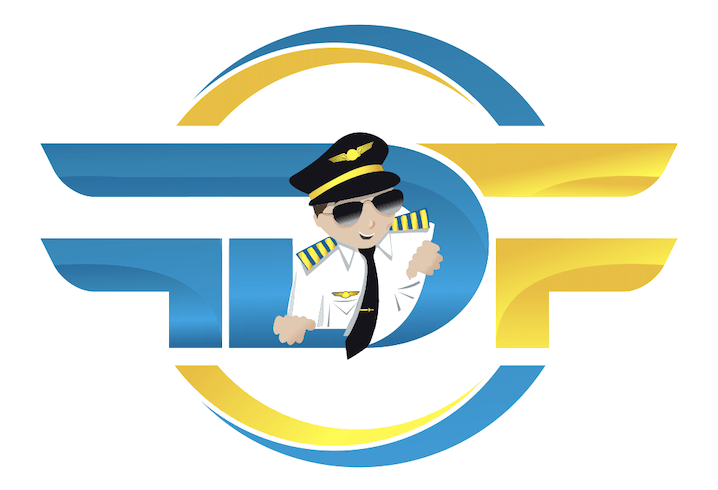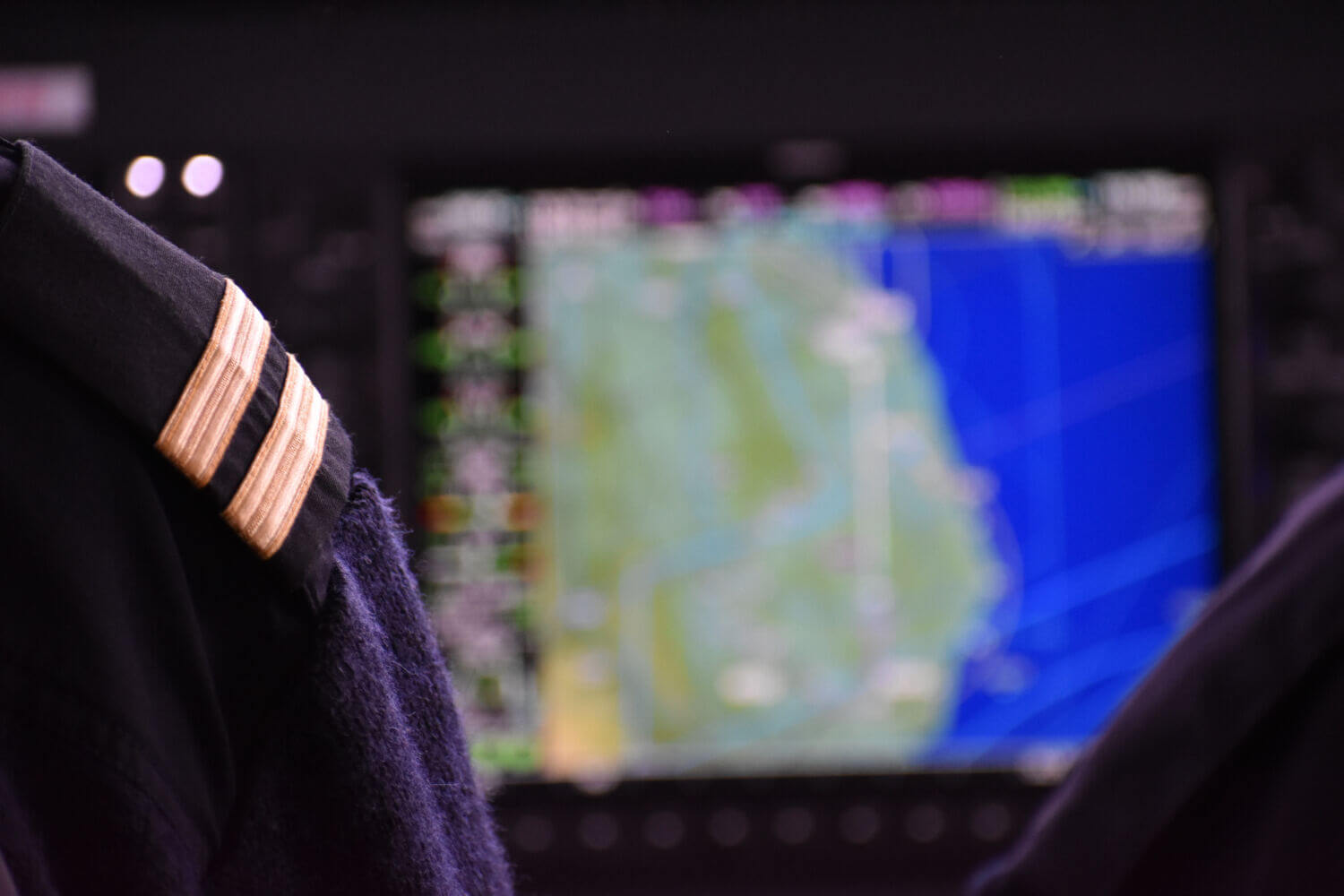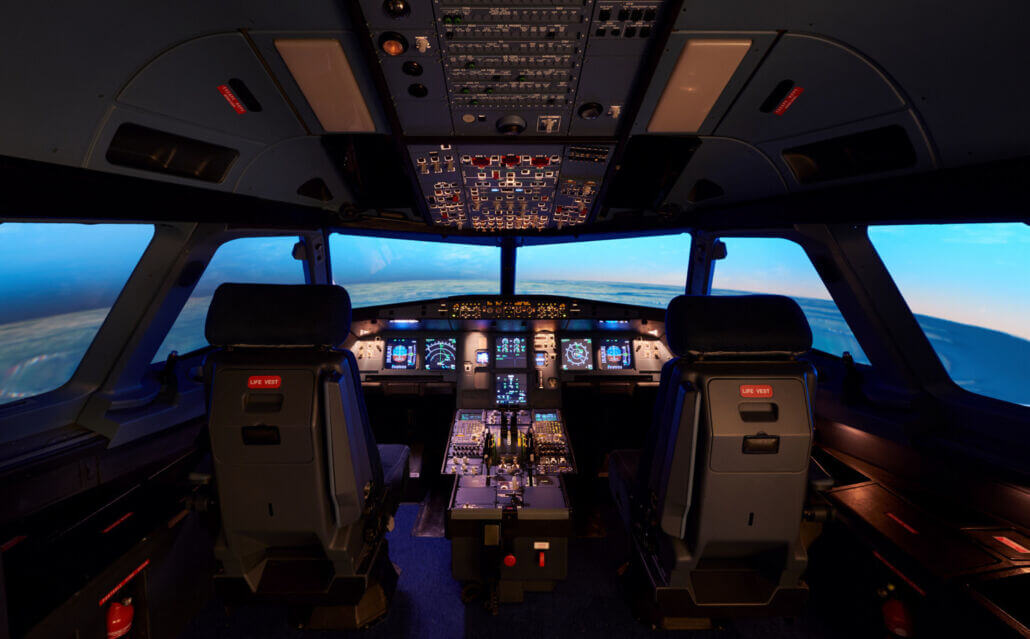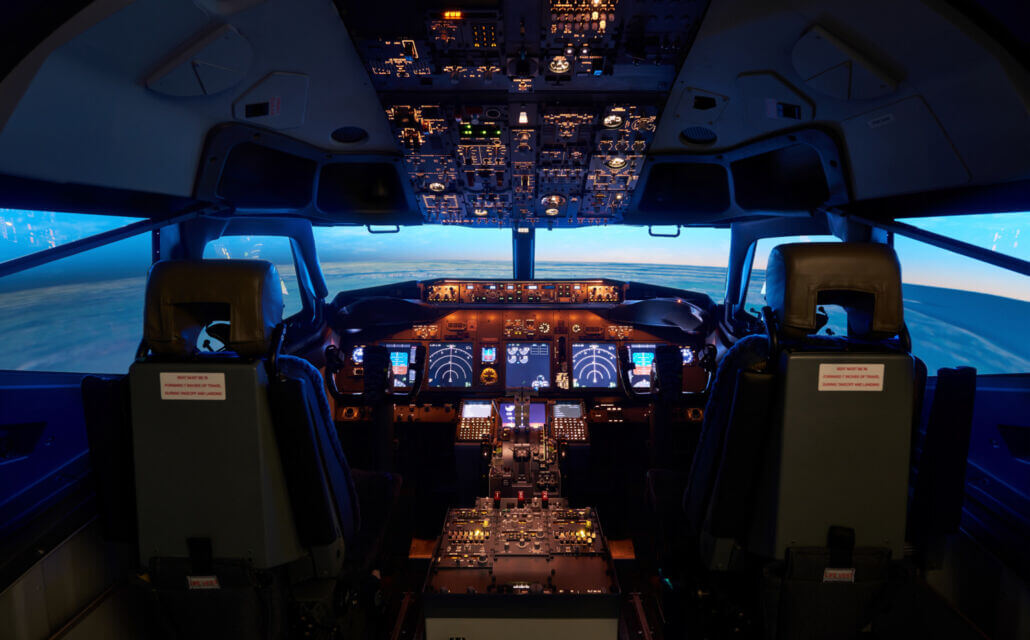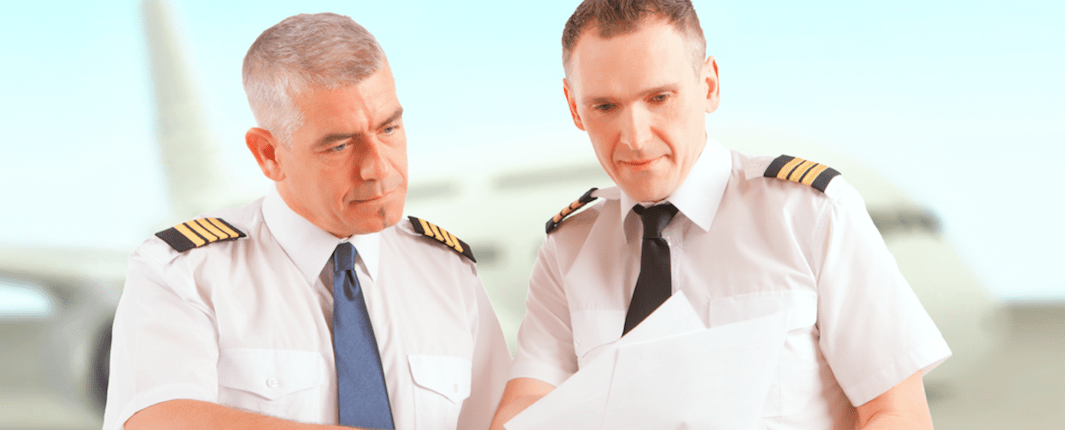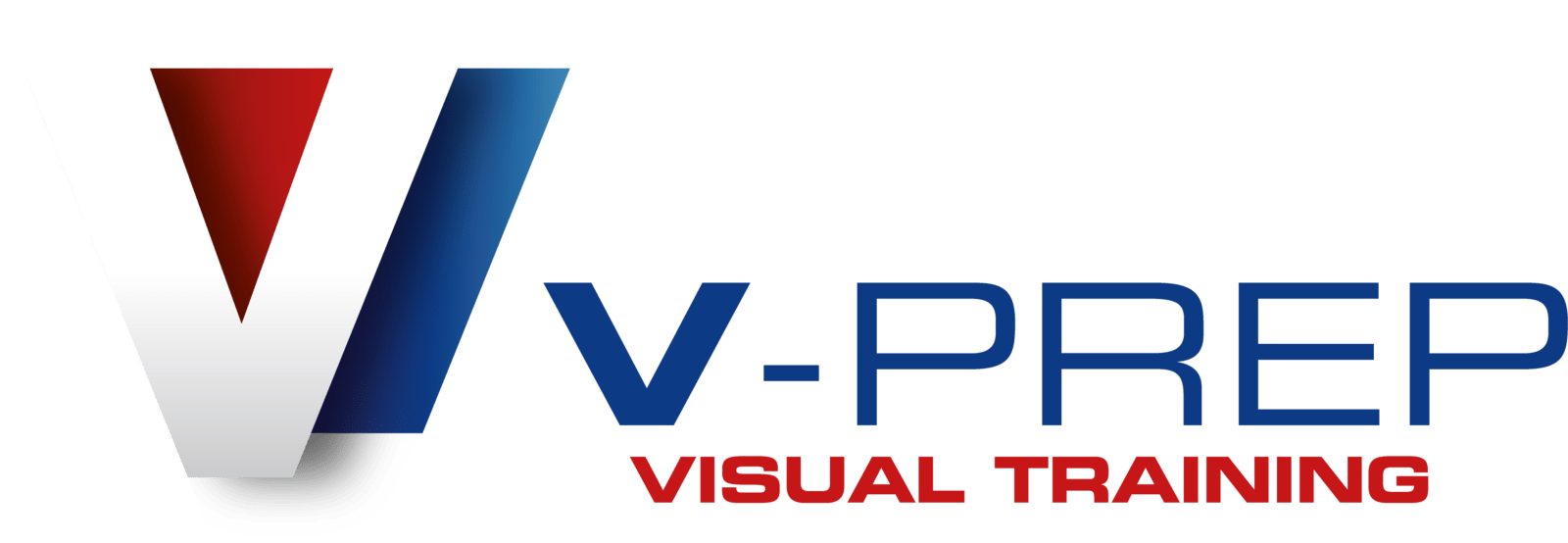Verbal Reasoning Pilot Practice Test
Practice and enhance your verbal reasoning and English language skills for your upcoming flight crew or flight school selection.
Whilst we provide a free Verbal Reasoning practice aptitude test, if you are looking for some more thorough preparation for your upcoming pilot assessment, with over 2,000 Verbal Reasoning practice questions, we’d highly recommend you visit our JobPrep partners, who offer pilot specific packages.
Verbal Reasoning Practice Tests For Airline Pilots
A verbal reasoning test is designed to test your understanding and verbal comprehension skills. It is also, indirectly, a test of your English language skills as they can contain obscure words that many people whose first language is not English, would not be familiar with. Airlines frequently use verbal reasoning tests as part of their initial selection process. It is something you can practice in order to improve your performance.
A verbal reasoning test consists of a paragraph of text. You will be instructed to read the text followed by studying a series of statements. You must determine whether the statements are either true, false or you are unable to determine based on the information contained in the paragraph of text. The tests are typically completed under pressurised time constraints. It is common that you will not be able to answer the questions in the allotted time. Whilst the rules can vary from test to test, be careful when rushing through the paper in order to answer all the questions, as they are often negatively marked. You are probably better to work quickly but accurately, rather than too fast and making mistakes, even if this means you will not be able to answer all the questions.
You should not use any previous knowledge you have on any subject to answer the questions, you must only use the information contained in the text. For example, if in the paragraph of text is saying that “the sky is green”, and the preceding statement says “the sky is blue”, you should confirm that the “the sky is blue” statement is false as it disagrees with what is stated in the text.
We would suggest you tackle the examination by reading the statement before you read the text. This will allow you to understand what information you are looking for, and you can answer the question when you have ascertained the information. If you read the entire paragraph, you might spend unnecessary time reading all of the text, when you could have stopped after the first few sentences.
Verbal Reasoning Free Practice Test
The text in the paragraph below is fictional. You should read the paragraph and then look at statements 1 – 7 below. You must determine, using purely the information contained within the text, whether each statement is either:
A) Definitely true
B) Definitely untrue
C) Can’t Tell
Each answer should be marked with the answer A, B or C. You can find the answers, with an explanation to each one at the bottom of the page.
Example
“Globe Airways, the world’s sixth largest carrier by fleet size, has recently announced that it will launch a service from London to Sydney in two months time. Its commercial department’s research has concluded that it will likely become profitable between in it’s second year of operation, when they anticipate carrying twice as many passengers than on its London to Singapore route. The London to Singapore route current currently carries 750,000 passengers a year. They anticipate a 64% load factor in year one, rising to 77% in year two. The route will be operated 6 days a week by a Boeing 747-400 aircraft with the possibility of transferring the service to the Airbus 380 should extra capacity be required.”
Globe Airways currently operates a London to Singapore route.
a – Definitely True. The text refers to the airline’s current London to Singapore route.
Globe Airways is the sixth biggest carrier in the world, based on the number of passengers it carries.
c – Can’t Tell. It says Globe Airways is the sixth biggest carrier in terms of fleet size which is not a reflection of passenger numbers.
Globe Airways anticipates carrying over one million passengers by year two on it’s London to Sydney route..
a – Definitely True. In year two, the airline says it will carry twice as many passengers as on it’s London to Singapore route, which currently carries 750,000 passengers. 2 x 750,000 equals 1.5 million, therefore it will carry more than 1 million passengers.
If Globe Air passengers wish to fly from London to Sydney at the moment, they must transfer at Singapore.
c – Can’t Tell. There is no reference to current arrangements for passengers wishing to travel to Singapore.
Globe Air will not operate the new London to Sydney route on Sundays and Tuesdays.
b – Definitely Untrue. It says the airline will fly the route six days a week. Therefore, saying it will not fly on two days of the week is incorrect.
Year three will see a load factor in excess of 80% on the London to Sydney route.
c – Can’t Tell. There is a reference to load factors in year one and two but not year three.
Globe Airways commercial department looked at the viability of the London to Sydney route before launching it.
a – Definitely True. The commercial department is stated to have researched the route beforehand. This implies they looked at the commercial viability.
Cadet Pilot Interview Questions
Cadet Pilot Interview Question Database
Our Cadet Pilot Interview Question Database has helped hundreds of aspiring pilots successfully pass flight training school and mentored airline pilot cadet program interviews. With intense competition for places on airline pilot cadet programs, it’s essential that you are thoroughly prepared for your selection day. You need to put in hours of work beforehand, to ensure that you stand out from the rest.
Please note that our Cadet Pilot Interview Question Database is the same document as our Pilot Interview Question Database. The document is suitable for interview preparation for all levels of pilots, whether prospective or current. Some questions will clearly be more relevant than others, but it is an exceptional tool to help you prepare for your cadet pilot interview.
Why Choose Our Cadet Pilot Interview Database?
One of the most important yet misunderstood elements which is assessed at the interview is competency. You can expect a multitude of HR/Competency and Motivational questions as well as a basic level of technical questioning. If you’ve not had the opportunity to practice these questions beforehand, it can be very difficult to think of an answer on the spot and under pressure.
Our Cadet Pilot Interview Question Bank has been built using questions from cadet programs and integrated flight training organisations across the globe. It consists of over 350 questions including both competency and technical based. It has been created by recruiters who have specifically conducted Cadet Pilot interviews.
This database also contains questions similar to those asked in the selection process for integrated flight training courses such as:
- FTEJerez
- L3 Aviation Academy
- CAE Oxford Aviation
- Airways Aviation
- FTA
Which Cadet Programs?
The interview questions are also representative of those used at MPL & mentored cadet pilot program interviews at airlines such as:
- easyJet (Generation easyJet)
- Emirates Cadet Program
- Wizz Air Cadet Program
- Aer Lingus MPL Program
- Air Asia Cadet Program
- Cathay Pacific Second Officer Program
- TUI Cadet Program
- Qatar Airways Cadet Program
Cadet Pilot Interview Question Examples
Examples of the types of interview questions are as follows (HR/Competency/Motivational & Technical):
- Give me an example of when you have demonstrated strong leadership skills?
- When have you worked well within a team?
- How do you deal with conflict?
- Tell us about a time when you’ve underachieved?
- How does an aircraft fly?
- How many planes do easyJet have?
- How do jet engines work?
- What engines do we have on our B737 fleet?
All of these questions come with suggested answers.
Pilot Interview Database Format
The Cadet Pilot Interview Question Database is a PDF document split up into three specific sections:
- General interview and assessment day advice and guidance
- Competency & Motivational Interview Example Questions and Answers
- Airline / Aviation / Pilot Technical Questions with Answers
ENHANCED PACKAGE – WITH SUGGESTED ANSWERS TO 350+ COMPETENCY AND TECHNICAL QUESTIONS
£39.99
What’s included in our Cadet Pilot Interview Question Database?
- Updated January 2022
- Emailed to you shortly after purchase
- 350+ interview questions and answers
- 114-page document consisting of over 32,700 words
For any further queries, please contact us via email at: [email protected]
Pilot Simulator Assessment Preparation
Simulator Assessment Preparation
With over fifteen years of experience in preparing pilots for their airline simulator assessment, VA Airline Training have helped thousands of pilots secure their dream job.
They offer tailored simulator assessment preparation and flight experience sessions on a comprehensive range of full motion and fixed based simulators located around the United Kingdom. This includes the Boeing 737 / 757 / 767 / 747 / 777 / 787 and Airbus A320 / A330 / A340 / A380. VA are a UK CAA approved ATO. From the first phone call to leaving the training center fully prepared, you can expect a highly professional and bespoke service geared towards ensuring you pass your airline sim check.
The most cost-effective simulator is either a certified fixed base 737-800 (Next Generation) or A320 simulator located at Cambridge airport, UK. These state-of-the-art simulators boast some of the best visual modelling in the UK and exceeds the visual quality installed in most full motion simulators. It also uses the Airbus / Boeing Flight Dynamics software, ensuring that the aircraft handles exactly like the real thing. Don’t settle for a generic simulator which can provide negative training, as it handles nothing like the real aircraft.
It provides a great opportunity to properly prepare for your simulator assessment with any airline.
VA Airline Training A320 Simulator
VA Airline Training B737 Simulator
Airline Simulator Assessment Preparation
- B737 or A320 Simulator
- Highly Experienced Instructor
- 1 Hour Pre-flight Briefing
- 2 Hour Simulator Time
- 30 Minutes Debriefing
- Free Airline Interview Question Database if FDF Discount Code is Used!
- £690 – Contact us for more information!
Every week we see our customers getting their dream job:
Pilot Sim Assessment Preparation
All of our assessment preparation sessions are run by experienced airline pilots who have a comprehensive knowledge of the airline simulator selection procedures. They are run on a one to one basis, ensuring you get the full attention of the instructor for the duration of the booking.
VA also cater for people just who want to brush up on their manual handling skills, or maybe you are considering a job in commercial aviation and just want to experience flying a commercial jet.
All sessions include a full 1 hour briefing specific to the airline to which you attending the assessment and a 30 minute debriefing plus the time stated in the simulator. All prices are inclusive of VAT. Prices below are for the Cambridge fixed based simulator, for a quote regarding a specific aircraft full motion simulator, please contact us.
Email [email protected] to make an enquiry.
FAQs
Before booking with a company offering a cheaper product, ask them the following questions:
Does it have the Boeing flight dynamics package?
Many simulators are just generic flight models with working panels and a projector that are based on nothing more than “jazzed up” version of Microsoft Flight Simulator. This is counter productive as it handles nothing like the real simulator will. Our simulator is certified to conduct pilot training in it which is testament to its realism.
Is your session with an experienced airline pilot with thousands of hours on type?
You can only teach someone how to fly the aircraft properly if you have extensive experience in operating the aircraft – not in the simulator but in real life! Lots of simulator ‘training’ companies are run by enthusiasts who have never operated a commercial aircraft.
Is it with a company that holds a UK CAA ATO approval?
Our flight training partners Virtual Aviation are approved to conduct Multi Crew Cooperation Courses (MCC). You can therefore expect to receive a very high standard.
Do they have 16 years of flight training experience?
Our flight training partners have just that. The knowledge and experience gained over this time is invaluable. No other company can compare to the quality of service, advice and knowledge that will be imparted.
Reviews
Don’t just take our word for it, this is a small selection of our customer reviews for our simulator assessment preparation service:
Improving Pilot Employment Prospects
Stay In Touch
The aviation industry is a very small world. You never know who you are going to bump into again throughout your career and who might be able to help you out on the way. Regardless of your training background, stay in contract with the fellow aviators you meet and old class friends. Keep track of which airlines they are applying/interviewing/working for as they might be able to provide you with valuable information or even recommend you for a job a few years down the line. Speak to them on a regular basis – working together and sharing information increases everyone’s chances.
Keep Track
The need to keep track of your airline applications can not be overstated. Maintaining an up-to-date spreadsheet allows you to keep a record of when you applied to each airline, whether you have received a response, if you met the minimum requirements and if they were actively recruiting etc. Keep note of if you have received a reply – have they put your CV on file for six months? By keeping all of this information documented and organised, you can reapply at set intervals. If there is no changes to either your circumstances (such as additional flying qualifications) or the airline’s recruitment status, we would recommend sending an up-to-date CV and cover letter every six months. Send airlines an application too frequently, or not keeping track of your applications, may not be looked on favorably by an airline.
Personalise your Pilot Application
Each airline job is different – sending out a generic CV and Cover Letter for a piloting job is unlikely to impress an airline and can be easily spotted. Tailor both your CV and Cover Letter specifically for the individual airline, considering the company culture, routes, fleet, expansion plans, career prospects etc. For assistance in this, visit our Career Hub section.
Network and Build Pilot Contacts
Get out there and meet new people. Many general aviation flying jobs that are excellent for hour building such as aerial survey or parachute dropping won’t be advertised and pilot recruitment for these roles is often through word of mouth.
Consider signing up to your local flying club even if you can’t afford to fly on a regular basis. Just offering to help out when you can willl go a long way to getting recognised and building contacts. The flying club members and instructors are likely to be from a range of backgrounds, and might include current airline pilots who might have inside information regarding future pilot recruitment.
Pilot cecruitment can often be carried out by recommendations from the airline’s current pilots. If you’ve impressed a fellow flying club member with your attitude and flying skills it could lead to your first commercial pilot job. You might also be luckily enough to get some free maintenance flights or a “free seat” in an aircraft which is all time in the logbook!
Research Airlines
Be proactive in your research. Look at the latest airline orders – which airlines are expanding, when are they expecting to take delivery of their new aircraft? If an airline is taking delivery of an air frame in the next few months, they may well need new pilots to fly it, therefore target your applications appropriately. Building up a picture of the industry can help you choose which airlines to send your CV and Cover Letters to.
Be Direct
If you’re applying for smaller outfits such as regional airlines or corporate companies, sometimes taking a direct approach can be effective. For example, turning up at a company’s office and directly handing your CV to the chief pilot will allow you to demonstrate that you have the personality for the job, show you are very keen and put a face to the CV. The chief pilot is much more likely to remember you after personal interaction rather than someone who has emailed them a CV which might put you higher up on the list of people they want to interview when they next recruit. You might even be lucky enough to be at the right place at the right time, just when they need to recruit additional crew!
Set Targets
Set yourself targets. If you are working in a job that isn’t aviation based after completing training, it is very easy to be become disheartened and loose motivation. To stop this happening, set yourself a target of applying to one or two companies a day or every other day (whilst keeping track of whom you’ve applied to!).
Pilot’s Licence Revalidation & Renewal
How to Keep your Pilot’s Licence Current
In order to apply for a First Officer position for an airline, you are required to hold a commercial pilots licence with a current multi-engine instrument rating (IR). If you don’t find a job within a year of completing your initial instrument rating, you will need to revalidate it in order to maintain your licence currency and be eligible to apply for a flight deck job.
We’ve explained the difference between renewing and revalidating the IR, and suggested some places which can provide such a service.
We would recommend maintaining a current IR at all times. The offer of a job can come round quickly and unexpectedly and as you are required to have a current IR in order to commence a type rating, a job offer is unlikely to be made without it.
In order to apply for a first officer position for an airline, you are required to hold a commercial pilots licence with a current multi-engine instrument rating (IR). If you don’t find a job within a year of completing your initial instrument rating, you will need to revalidate it in order to maintain your licence currency and be eligible to apply for a flight deck job.
We’ve explained the difference between renewing and revalidating the IR, and suggested some places which can provide such a service.
We would recommend maintaining a current IR at all times. The offer of a job can come round quickly and unexpectedly and as you are required to have a current IR in order to commence a type rating, a job offer is unlikely to be made without it. You are not required to hold a multi-engine class rating to commence a type rating.
Revalidation
A multi-engine instrument rating (IR) is valid for 12 months after it’s issue or revalidation. An IR shall be revalidated within the three months immediately preceding the expiry date of the rating. The IR revalidation can be completed at the same time as a class rating – this basically means you can revalidate your multi-engine rating alongside your instrument rating. To revalidate the IR, you are required to complete a proficiency check.
An IR revalidation can be completed in an FNTP II simulator every other year, however you are unable to revalidate your class rating in the simulator. This can be a significantly cheaper option that completing it in the aircraft.
Renewal
- If your IR has expired, you are required to renew it. This must be done in an aircraft, an FNTP II simulator can’t be used.
- If your IR has expired by less than 5 years, the applicant must complete a Skill Test with an authorised examiner.
- If your IR has expired by more than 5 years but less than 7 years the applicant must pass a type rating skill test with or observed by a UK CAA Flight Operations Training Inspector.
- To renew an IR that has expired by more than 7 years, the applicant will also be required to retake the IR theoretical knowledge examinations.
Where to go . . .
We have compiled a price comparison list for some of the companies that offer IR renewal and revalidation. The fees include aircraft hire and the examiners fee. All prices are approximations – you need to speak to the company for a direct quote.
UK Flying.com – June 2021
An organisation with EASA & UK Examiners available for hire at various locations across the UK. Free online refreshers are offered as part of the process.
-
Simulator DA42 (No Practice, 1.5hr test) – £450 (includes online refresher training and test materials)
- Simulator DA42 (1 Hours Practice, 1.5hr test) – £645
- Aircraft DA42 (No Practice, 1.5hr test) – £720 (includes online refresher training and test materials)
- Aircraft DA42 (1 Hours Practice, 1.5hr test) – £1060
Contact via website or email [email protected]
Multiflight (Leeds)
Simulator BE76 (No Practice) – £388
Simulator BE76 (1 Hours Practice) -£581
Aircraft BE76 (No Practice) – £560
Flying Time Aviation (Shoreham)
Simulator DA42 (No Practice) – £433
Simulator DA42 (1 Hours Practice) – £602
Aircraft DA42 (No Practice) – £742
Aircraft DA42 (1 Hours Practice) – £1117
Mid Anglia School of Flying (Cambridge)
Aviation Jobs – For Pilots Not Flying
The harsh reality is that some people will have to wait a number of years to get their foot in the door, and some may never make it to the right hand seat of an airliner. For some it is both practical and benefical to consider employment in an aviation field that isn’t flying.
This can be a great way to develop valuable skills and experience which you can take with you throughout your aviation career. They can also be great editions to the CV, demonstrating your passion and perserverance to prospective employers. Most importantly, this can be an excellent way to network and make “inside” contacts within airlines, eventually leading to a flight deck job.
The difficulty can be pursading the employer that you are genuinely interested in the job and not just looking for a “backdoor” route into the cockpit. Many of the jobs listed below are careers in themselves, and thus companies will be looking for prospective employees who are keen to embark upon a long term career with them. This is obviously not typically the case if you have a commercial pilots licence on your CV. There is therefore a temptation to not include your flight training background in your application. We would advise against this – tell them the truth. Leaving a gap in the timeline on your CV can be an indication that you have something to hide and therefore work against you. Other employers will find the knowledge base you have as a commercial pilot to be particularly desirable for the role. Honesty is the best policy and if you are genuinley keen about the job, this will reflect well in your interview regardless of your long term career aspirations.
UPDATE!! See our low hour pilot jobs section for details about EasyJet’s internal First Officer Scheme , designed specifically for those working in a related role within the company.
We have listed some jobs which you may wish to consider:
Flight Operations Controller
Flight operations controllers are responsible for a wide range of tasks within an airline. Often referred to as the nerve center of the airline, the staff in operations control make critical decisions affecting the day to day operation of the airlines schedule. Their primary duty is to ensure the smooth running of the fleet and schedule on the short term basis. This might include flight watch, flight planning, slot planning and resolving crewing issues.
This role requires you to liaise with flight deck crew on a daily basis and consider factors which are familiar from the ATPL theory training such as meterology (METARs/TAFs) and Notams. Depending on the airline, it can also provide an excellent opportunity to experience the running of an airline from ground level, in terms of long and short term strategic planning, fleet management and liasing with air traffic control / Eurocontrol.
Crewing Contoller
Crew control are responsible for ensuring that the companies fleet are crewed to meet the airlines requirements for the short term schedule. Liasing with flight crew on a daily basis, crew control deal with flight time limitations and provide solutions for crew being out of position or unfit for duty. On busy shifts the job has been likened to solving a big jigsaw puzzle – flight crew can be positioned all over Europe or the World, and it’s your job to ensure you can re-crew aircraft as quickly and effectively as possible.
Cabin Crew / Flight Attendant
No other work group will have access to the flight deck (other than the pilots) as much as cabin crew. Working on the aircraft, in terms of day to day lifestyle, it is the closest job you can get to being a pilot. As you liase directly with the flight crew on a daily basis, it can be a great way to build up contacts.
It is however a challenging job and you need to be committed to doing the task in hand to the best of your ability. Using every opportunity possible to let your collegeagues (both front and back) know that you are a qualified pilot can be counter productive and become an annoyance rather than benefical. If you conduct yourself in the right manner, demonstrating a hard working and positive attitude, the right people will eventually notice with the possibility of your dream job coming about as a result.
Dispatcher
The dispatcher is responsible for co-ordinating the turn around of an aircraft whilst on the ground. Duties include producing a loadsheet for the flight crew and ensuring all services, such as fuelling, catering and ground equipment is available without delay. The role requires communication with the flight crew and the airlines operations department. Dispatchers are employed through a ground handling agent, such as Swissport or Servisair, who have specific airline contracts.
Pilot’s Licence Validation & Currency
Keeping current is beneficial for both maintaining your flying skills, building hours and making yourself more desirable to employers. Maintaining flying currency can be expensive but will help you maintain a skill set that is perishable whilst demonstrating your commitment to finding a job. When recruiting low hour pilots, some airlines stipulate that you must have completed a certain amount of flying time within the previous year or six months so logging as much time as you can, can be of great benefit.
Choosing what type of flying you do is very important. Spending your time flying around sightseeing in VMC can be fun, but is not productive. Where possible, you should use hour building flight time to enhance your instrument rating skills on challeging routes and busy in airspace. Multi engine aircraft might cost twice as much per hour than single engine aircraft, but the flight time and experience gained is much more valuable on a multi than single engine aircraft.
You could also spend your time in a high spec flight simulator. This is a great way to ensure that you will get the most from your flying, as you’ll be operating a high performance jet aircraft to airline standard operating procedures. An airline will be much more impressed with this than spending your time flying VFR in a single engine aircraft. You’ll be coming into contact with current airline pilots who may become high useful contacts in your search for your first airline job.
If you can’t afford to fly on a regular basis, try to go to your local airfield or flying club as much as possible. Volunter to help out with any aspect of the operation. This will help you to network with people and you’ll probably find that in return that you are offered spare or back seat flights. Whilst you may not be operating the aircraft yourself, it’s still a very good way of maintaining the flying mindset and gaining experience. Many airline pilots fly or instruct on light aircraft alongside their regular airline job – you might just meet the right person who can open a few doors!
It might sound basic, but another alternative is using IFR trainers or even Microsoft Flight Simulator can help to keep your understanding of instrument procedures up to scratch. Why not practice flying a SID or approach using the autopilot. This could be the difference with being sharp enough to pass an airline simulator check should the opportunity arrive at short notice.
Pilot CV & Cover Letter Express Service
Pilot CV & Cover Letter Express Service
If you need a pilot CV and Cover Letter in a hurry, we offer a specialised, premium express service. This is as per the service detailed on our tailored CV & Cover Letter page, but with a much faster order turnaround.
Perhaps a recruiter has asked you for a CV or maybe you’ve notice an airline is recruiting but will close for new applications very shortly. Don’t worry! FlightDeckFriend.com provides a specialised express CV and Cover Letter service for customers who require professionally tailored documents in a hurry. Both documents are expertly structured with essential content and specifically targeted to an airline of your choice. You can read more about the basic service provided here – this page is specifically for our express documents service.
Please note – our CV design team are all full time commercial pilots. This service is therefore subject to the availability of one of our designers. On some occasions, we may therefore not be able to offer an express service.
36 Hour Service
- Always Available
- CV & Cover Letter Combo – £239.99
- Individual CV – £159.99
- Individual Cover Letter – £159.99
24 Hour Service
- Dependant on Availability
- CV & Cover Letter Combo – £269.99
- Individual CV – £189.99
- Individual Cover Letter – £189.99
12 Hour Service
- Dependant on Availability
- CV & Cover Letter Combo – £319.99
- Individual CV – £219.99
- Individual Cover Letter – £219.99
A320 Online Training Package
A320 Online Training
We have an exciting new product available for the FlightDeckFriend.com community. This kind of training platform is the first of its kind in the world, it’s new and innovative and the company are passionate about changing the way pilots train. We don’t often promote products to our followers but having sampled this product ourselves we simply had to write about and recommend it.
The all new A320 flight crew training and briefing video system explain in visual detail the normal and abnormal procedures of how to operate the Airbus A320. It combines cockpit footage with 3D animation, graphics and narration.
It is ideal for simulator assessments on the A320, preparation and studying before and during a A320 type rating course or your 6 monthly simulator LPC checks.
The training platform which is available on your smartphone, tablet or laptop / computer show you what you should be doing, why and when.
The videos highlight where you should be looking and what you need to see.
Procedures you only see once every few years in a simulator, you can now watch as many times as you want wherever you want, you could be on the train, sat in the car park before your simulator assessment or just sat at home – all you need is an internet connection.
Please note:
There are some fraudulent websites / Facebook pages promoting themselves as an agent of V-PREP. Users have paid their subscription with these companies and then not received access to the package. The only way to get access is directly through V-PREP. Use the link for a FDF special discount.
Latest Press Release
Flying High as New Pilot Training System is Launched.
Pilots learning to fly holiday jets could see their training transformed thanks to a revolutionary new product developed by a Midlands pilot.
Captain James Feeney who lives near Leek in Staffordshire has spent the last two years working with a team of developers, animators, graphic designers and 3D media specialists to perfect a unique online training system called V-Prep.
As seen on ITV’s hit series ’Inside the Cockpit,’ pilots learning to fly the A320 currently use a combination of text book learning and flight simulators before they venture into the cockpit – a process which takes up to 18 months.
Now thanks to Captain Feeney’s pioneering new system, pilots can supplement their training virtually. V-Prep combines 3D affects, cockpit video footage and voice-over explanations covering more than 80 different processes for the A320 including: normal procedures, flight control laws and protection and abnormal/emergency procedures. Pilots can access the training 24-7 via laptops, tablets, smartphones and anywhere with an internet connection.
Captain Feeney flew and trained on Boeing and Airbus aircraft for 23 years and has taught and examined pilots training to fly the A320 for the last ten years.
Now Chief Executive of V-Prep, the father of four says: “As a Training Captain I was frustrated by the lack of modern training material outside the simulator or classroom environment and the reliance on old-fashioned manuals. I saw that some pilots were supplementing their training with free online material that was often out of date and inaccurate, so I wanted to create something current, easily accessible, and easy to use and understand. We’ve already had enormous interest from organisations and individuals and with approximately 150,000 additional A320 pilots needed over the next 20 years to cope with the worldwide demand, we’re expecting more and more.”
Senior Captain Keith Longden from Andorra was a senior instructor at Airbus Industries Training, where he actually trained the trainers and has both taught and examined pilots learning to fly the Airbus aircraft over the last 25 years.
He has developed many of the techniques used to fly the Airbus today and provided much of the technical input into the V-Prep training system. He said: “We have developed an extremely professional product for pilots, and we have designed it around the way the A320 is flown. We have been absolutely scrupulous with our quality control and are extremely proud of the training we have developed, which we know will save pilots and airlines time and money. Our training is robust, accurate, up to date and will improve the overall learning experience for pilots by making complex procedures easier to learn.”
Pilots can sign up to the training model for $295 a year. Launched in July, the aim is to have 1000 people registered in the first year of operation and expand the site and its capability to offer training on other products in the future.
A test site for pilots to view before they sign up has also been set up and can be viewed by going to: https://www.youtube.com/channel/UCWTy3hGaB6_XlmZgEBCpKaw
Visit https://v-prep.com to place your order for an annual subscription. The cost is $295 plus VAT, with FlightDeckFriend customers receiving a 10% discount by using the code fdf10%off during the checkout process.
Why Choose V-Prep?
Professional Training by experienced A320 TRE’s
All the instructors are Training Captains on the A320. Between them they have over 70 years and 40,000 hours of flying experience together with 25,000 hours training on modern jet aircraft in the simulator and in the air.
Captain Kieth Longden was a senior instructor at Airbus Training in Toulouse (he trained the trainers) and has instructed and examined on many Airbus aircraft for over 25 years. He developed many of the techniques seen in our video’s. Although retired from his full time position he still trains for Airbus freelance, keeping up to date with the latest training information.
Captain James Feeney flew and trained on Boeing and Airbus aircraft for 23 years and instructed and examined on the A320 over the past 10 years. He has flown and trained on the A320 in Europe, America, Asia and the Middle East.
What is the video quality like?
These videos are not shot from a smartphone at the back of a simulator. V-prep have invested significantly in ensuring that the sound and video quality is excellent. Don’t take our word for it, have a look at the demo video yourself.
They present the information using simulator footage, 2D and 3D animation and narration to give you a full understanding of WHAT you need to do and WHY you are doing it and WHEN.
How does the subscription work?
A normal subscription is $295 + VAT for a 12-month subscription. Use the FDF promotional code for a 10% discount.
Once subscribed V-prep offer a full support service via email and phone in case of any problems, and you will be able to stream the videos 24/7.
What subjects does the training platform cover?
The answer is EVERYTHING! The platform covers everything you need to know about the A320. All the procedures are derived from Training manuals and Airbus FCOM. They are updated as and when procedures change.
There are over 80 videos in total, including all Normal Procedures, Fight Control Laws and Protection, Abnormal and Emergency Procedures, Supplementary Training and FMGC Programming.
Further videos are being developed and added all the time.
